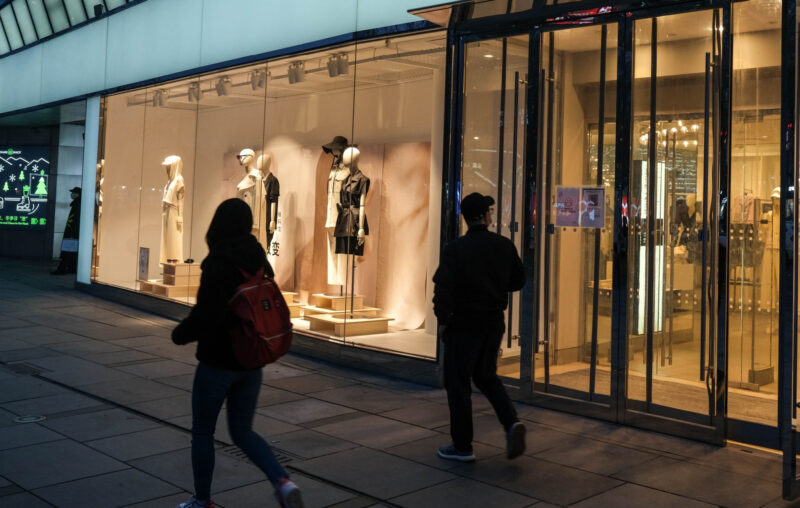Before Joining the Boycott Bandwagon, Consider This

In 2010, I had a student proudly state in my class that he was boycotting all BP gas stations in response to the disastrous Deepwater Horizon oil spill. Roughly two years later, some of my students were choosing to boycott Chick-fil-A after hearing about a kiss-in event to protest the founder’s stance on same sex marriages. My response to these students is the same as my response today regarding the current boycotting of Bud Light, Target, Chick-fil-A, Kohl’s, and whatever other company shows up in tomorrow’s news feed – Consider the spill-over effects and do what best serves your interests.
As consumers, we rightfully can and should react to missteps in marketing and the mishandling of management made at the top. But it is also important to be aware of how our actions will impact more than just CEOs or stockholders.
Gas stations and fast-food chains provide franchising opportunities for budding entrepreneurs, and for those in your local community who chose to invest in a Chick-fil-A rather than a KFC, they are now bearing the direct costs of boycott backlash.
Similarly, retailers serve as a powerful intermediary between producers and consumers, and for new businesses and creative producers, having a product featured on store shelves can be a dream come true.
A few years ago, the founder of a Bulgarian yogurt company graciously spoke to my class about how hard he worked to create a delicious, healthy, and reasonably priced product, but the biggest hurdle was attaining shelf space in retail outlets to better reach and serve consumers. Indeed, it is no easy feat to have your product carried by popular retailers but for those who previously benefited from Target’s in-store traffic, it may be time to relocate one’s inventory to other store shelves.
And it’s not just producers and franchisees who are impacted by consumer boycotts, but also those involved in the upstream and downstream activities of associated supply chain networks. Truck drivers serving as part of Bud Light’s distribution network had nothing to do with the marketing of Dylan Mulvaney, just as any high schooler working at a Chick-fil-A had no say in the creation of a DEI C-suite position. Yet, given the rise of advocacy campaigning in corporate America, we all may need to dig deeper when researching what companies we wish to work for and buy from and why.
Clearly a cultural battle is being fought. Dylan Mulvaney has over 10 million followers, pride promotions pop up each year, and DEI positions are commonplace at most major US firms. As such, it seems that some real soul searching needs to occur when it comes to society’s influence upon business practices.
Corporations have been embedding activist elements into their marketing strategies for quite some time now, largely in response to consumer expectations. The corporate social responsibility (CSR) mantra of the 1990s has graduated into the corporate advocacy initiatives we see today – which, when done right, can be a good thing. In fact, some forms of social activism can align nicely with a firm’s offerings. For instance, Santander Bank linked up with the National Coalition Against Domestic Violence after a study uncovered that 99 percent of domestic violence situations involve financial manipulation inhibiting the ability for a victim to access funds for leaving.
When a firm’s resources, competencies, and connections can help remedy a social problem, such opportunities can be a win-win for improving a brand’s image as well as negative situations. Disastrous results can occur, however, when a firm relies on social matters for simply making sales or if the connection makes little sense.
Take for instance, Target’s in-store pride campaign, which seems to be alienating and confusing consumers. Products previously displayed up front are now being moved to the back over concerns of what is being conveyed toward children, which can be a serious matter.
Whether it is a commercial, magazine ad, or use of retail media space, companies should always be wary of what is visible to those under the age of 12 in their target market, and how parents might react to such marketing material.
The Children’s Advertising Review Unit (CARU) of the Council of Better Business Bureaus establishes guidelines for marketing to children and notes that children are “uniquely impressionable and vulnerable,” so advertisements should never be manipulative, deceptive, or inappropriate for younger audiences, regardless of the medium being used. Guidelines, however, do not mean parents today do not need to be vigilant about what kids are being exposed to or to what is being sold in stores and online. Parents should take primacy in the consumer socialization process of their children.
At the end of the day, it is your choice to buy or boycott, complain or consume. Just be sure to consider the impact, and consider your needs. If you simply can’t go without a Bud Light on the weekend, Anheuser-Busch will likely toast to that. And if Target really offers the best deals this weekend, purchase products of brands you do support and avoid aisles of those you don’t. We should all be thankful to live in a country where there are plenty of options for beer and bargain buys and that we have the power to vote with our dollars and voice our concerns.









